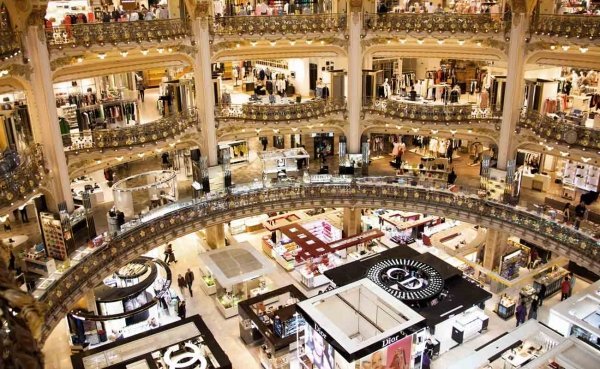We live in a dangerous city. For most of us, our experience of crime and persecution is considerably less than many people in other places, and for this we can be grateful for ourselves and compassionate for others. Still, I contend that we live in a dangerous place. Why? because we live in a wealthy place, and wealth brings with it so many enticements and seductions that Jesus warns that it is harder for rich people to enter the kingdom of heaven than for a camel to pass through the eye of a needle (Matthew 19:24).
“Shopping is America’s religion” was the title of a recent column not in a Christian magazine, but in the Washington Post. I started thinking about that idea and realized you could make a pretty good argument for shopping being the unofficial religion in our land, since it comes complete with:
- Holy days. Black Friday is the shopping day that ate Thanksgiving. Some of us are old enough to remember when the day after Thanksgiving was a day of rest, and more eating, not a mad search for door busters. Of course, there’s also Amazon Prime Day, sales on all the national holidays, and the granddaddy of all shopping sprees, Christmas.
- America has these vast cathedrals, some with thousands of parking spaces, complete with vaulted ceilings, glistening icons, pilgrims coming and going following a liturgical calendar, maps to orient seekers, and promises of a better life right now in exchange for offerings large and small. We call these sanctuaries, “malls.”
- Shopping as religion comes complete with offerings (offered up using small plastic cards), worship songs and slogans (how many people tune in to the Superbowl just for the ads?), disciplers (to train and assist you to buy the perfect ‘x’ to help you reach your potential), social media (to teach
you where to locate your identity), and priests (many of whom work behind-the-scenes to decide what the faithful will wear, drive, eat, and connect to in the coming year).
We not only live in a land of consumers, we also live in a city that is extraordinarily prosperous. By one measure, Fairfax County is the second wealthiest county in the country (Loudon is first, Arlington is 5th). We may not feel rich, but if we look across the globe we discover that a person who earns just $32,000 per year earns more than 99% of the people in the world (you can look up your own income here).
The danger of money and wealth isn’t the money and wealth; it’s loving it too much. When we expect the latest trip or purchase to give us abiding joy, when we trust in our financial portfolios and assets to make us secure, then we’re asking material things to provide more than they can. We want these gifts to produce gratefulness to, and trust in, the Giver, our God and Father.
How can we follow Jesus well here and now? I believe God has dropped us right here in this place and time; how can we love and obey him and make him known? We can live generously. Have you ever noticed that little saying of Jesus’ that is dropped into Acts 20:35? It’s not found in the gospels, but it was in circulation among his followers and Paul mentions it as he reminds the elders from the church in Ephesus about how he worked hard and lived generously among them. He says he was just applying what Jesus taught, “It is more blessed to give than to receive.”
Better to give than to receive? Seriously?
Think about those nine words, “It is more blessed to give than to receive.” Could anything be more counter-cultural? Better to give than receive? Seriously? What ad campaign would encourage you to take the money you were going to use to buy this phone and give it away instead? I’d like to be there in the pitch meeting when they propose that idea! Yet here we find the upside-down nature of the kingdom of the crucified Messiah, who calls us not to take up our credit cards and feather our nests with as many goodies as possible, but to take up our cross and follow him, turning away from shopping as religion and living generously instead.
This is the first in an occasional series to encourage us to live generously in an age of consumerism. Future posts will explore stewardship (the change in identity that loosens the grip of money), generosity (how to develop joyfully generous hearts), giving to the local church (where does this fit in God’s priorities for us?), and tithing (how much should we give?).
Mark Mullery
P.S. Got comments or questions about this post, or ideas for another one? Email me at .

 you where to locate your identity), and priests (many of whom work behind-the-scenes to decide what the faithful will wear, drive, eat, and connect to in the coming year).
you where to locate your identity), and priests (many of whom work behind-the-scenes to decide what the faithful will wear, drive, eat, and connect to in the coming year).